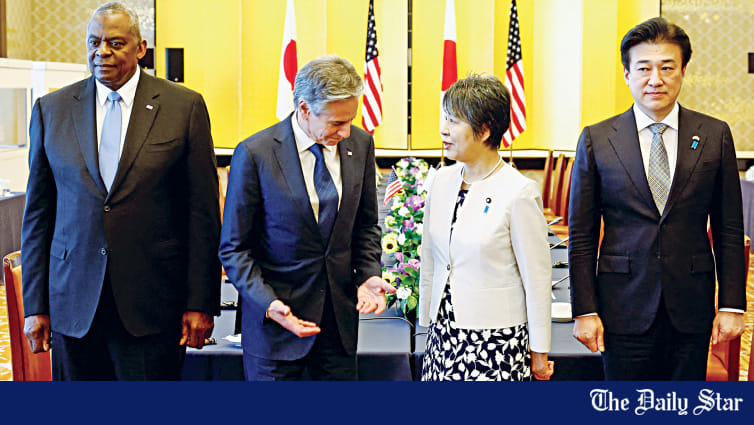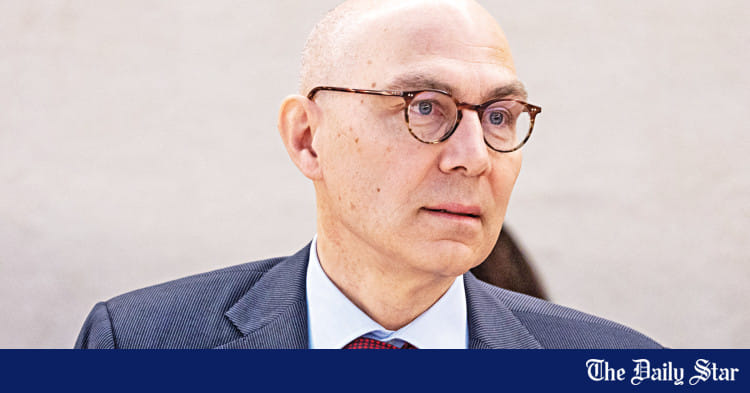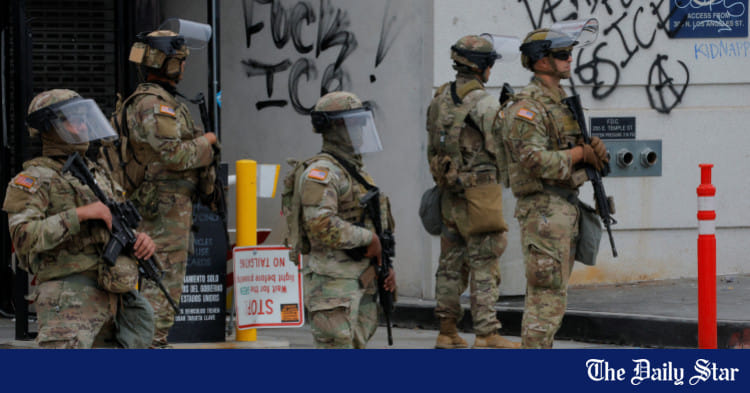Saif
Senior Member
- 13,746
- 7,411
- Origin

- Axis Group

Source
:
https://www.thedailystar.net/opinion/views/news/when-will-the-us-gain-independence-israel-3630511
When will the US gain 'independence' from Israel?

US President Joe Biden and Israeli Prime Minister Benjamin during a meeting in New York City, US on September 20, 2023. FILE PHOTO: REUTERS
In a video recorded in 2001, Israel's Benjamin Netanyahu reportedly said, "The main thing, first of all, is to hit them [Palestinians]. Not just one blow, but blows that are so painful that the price will be too heavy to be borne." Dismissing the possibility that the United States would be an obstacle to the perpetration of such gruesome crimes, he added, "I know what America is. America is a thing you can move very easily, move it in the right direction. They won't get in the way."
When the above statement was first reported in various media outlets in 2010, Netanyahu's claim of Israeli influence over the US was met with disbelief and, in some quarters, with ridicule. Many thought it was inconceivable. How could Israel exercise such control over a country like the US?
More than a decade on, if we unpack the intricacies of US-Israel relations, we may not characterise Netanyahu's statements as hyperbolic or counterintuitive. Those who have eyes to see and ears to hear understand that the US-Israel relationship is asymmetrical and lopsided in favour of the latter's interests. Successive US governments have been acting against the stated values and principles of their country in order to offer unconditional support for inhuman Israeli policies against Palestinians. US governments—both Democratic and Republican—have been routinely ignoring their own human rights stance by using the veto power at the UN Security Council to protect the Israeli state from criticism of its gross violations of human rights and international laws.
The US's acquiescent submission to Israeli authorities has become more conspicuous, and the magnitude of its catastrophic consequences more evident, since early October 2023 when Israel launched its ongoing genocide against Palestinians. At the expense of its domestic and international interests as well as its global standing, the US has been providing Israel with economic incentives and military munitions, which the latter has been using to slaughter innocent Palestinian children, women, and men and to demolish educational institutions and other critical facilities—all designed to trigger a mass exodus of the surviving Palestinians from their land.
There are instances when the US government treated its own citizens' lives as less valuable than the interests of Israel.
To read the rest of the news, please click on the link below.
US President Joe Biden and Israeli Prime Minister Benjamin during a meeting in New York City, US on September 20, 2023. FILE PHOTO: REUTERS
In a video recorded in 2001, Israel's Benjamin Netanyahu reportedly said, "The main thing, first of all, is to hit them [Palestinians]. Not just one blow, but blows that are so painful that the price will be too heavy to be borne." Dismissing the possibility that the United States would be an obstacle to the perpetration of such gruesome crimes, he added, "I know what America is. America is a thing you can move very easily, move it in the right direction. They won't get in the way."
When the above statement was first reported in various media outlets in 2010, Netanyahu's claim of Israeli influence over the US was met with disbelief and, in some quarters, with ridicule. Many thought it was inconceivable. How could Israel exercise such control over a country like the US?
More than a decade on, if we unpack the intricacies of US-Israel relations, we may not characterise Netanyahu's statements as hyperbolic or counterintuitive. Those who have eyes to see and ears to hear understand that the US-Israel relationship is asymmetrical and lopsided in favour of the latter's interests. Successive US governments have been acting against the stated values and principles of their country in order to offer unconditional support for inhuman Israeli policies against Palestinians. US governments—both Democratic and Republican—have been routinely ignoring their own human rights stance by using the veto power at the UN Security Council to protect the Israeli state from criticism of its gross violations of human rights and international laws.
The US's acquiescent submission to Israeli authorities has become more conspicuous, and the magnitude of its catastrophic consequences more evident, since early October 2023 when Israel launched its ongoing genocide against Palestinians. At the expense of its domestic and international interests as well as its global standing, the US has been providing Israel with economic incentives and military munitions, which the latter has been using to slaughter innocent Palestinian children, women, and men and to demolish educational institutions and other critical facilities—all designed to trigger a mass exodus of the surviving Palestinians from their land.
There are instances when the US government treated its own citizens' lives as less valuable than the interests of Israel.
To read the rest of the news, please click on the link below.










































